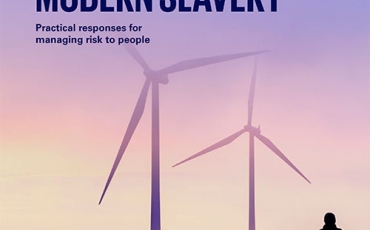FIFA 2023 Women’s World Cup Human Rights Risk Assessment (2021)

Introduction
1.1 Purpose of the human rights risk assessment
In June 2020, there was cause for much celebration as Australia and Aotearoa New Zealand were announced as the joint host countries of the 2023 FIFA Women’s World Cup[i] (FWWC2023/tournament), one of the world’s biggest sporting events.
In July 2021, in line with its stated commitment to human rights, the Fédération Internationale de Football Association (FIFA) partnered with the national human rights institutions of the two host countries: the Australian Human Rights Commission (AHRC) and the New Zealand Human Rights Commission (NZHRC) to consider human rights concerns related to the FWWC2023.
The AHRC and NZHRC have been asked by FIFA to conduct an independent human rights risk assessment in preparation for the tournament (Human Rights Risk Assessment).
The objective of this Human Rights Risk Assessment is to:
- identify and prioritise, jointly with relevant stakeholders, human rights-related concerns to be addressed as part of FIFA’s Sustainability Strategy for the tournament
- to provide the findings and make recommendations to FIFA accordingly.
This Human Rights Risk Assessment has identified the salient human rights risks, which the AHRC and NZHRC recommend that FIFA should take into consideration in preparation for the FWWC2023. Recommendations in relation to these risks are set out in section 4 of this report.
This Human Rights Risk Assessment builds on FIFA’s considerable work over several years in seeking to promote respect for human rights and respond to the concerns of affected stakeholders and civil society. In May 2017, FIFA published a human rights policy,[ii] in which FIFA committed to respect human rights in accordance with the United Nations Guiding Principles on Business and Human Rights[iii] (UNGPs).
FIFA’s human rights policy acknowledges the potential adverse impacts FIFA tournaments can have on the human rights of people belonging to specific groups, such as indigenous peoples, women, national, ethnic, religious and linguistic minorities, children, disabled people, migrant workers and their families, human rights defenders, and people with a diverse sexual orientation, gender identity or expression, or sex characteristics (LGBTQI+).[iv] Furthermore, it identifies the following ‘salient human rights risks’ related to its operations: labour and employment rights, land acquisition and housing rights, discrimination, security, and players’ rights.[v]
[i] Jacqueline Howard, ‘Australia and New Zealand to host 2023 FIFA Women’s World Cup’, ABC News (Online Article, June 26 2020) <https://www.abc.net.au/news/2020-06-26/australia-and-new-zealand-to-host-2023-fifa-womens-world-cup/12394688>.
[ii] Fédération Internationale de Football Association, Human Rights Policy (Policy, May 2017) <https://digitalhub.fifa.com/m/1a876c66a3f0498d/original/kr05dqyhwr1uhqy2lh6r-pdf.pdf>.
[iii] United Nations Office of the High Commissioner for Human Rights, Guiding principles on business and human rights: Implementing the United Nations ‘Protect, Respect and Remedy’ Framework, UN Doc HR/Pub/11/04 (16 June 2011) <https://www.ohchr.org/documents/publications/guidingprinciplesbusinesshr_en.pdf>.
[iv] Fédération Internationale de Football Association, Human Rights Policy (Policy, May 2017) Articles 1-2 <https://digitalhub.fifa.com/m/1a876c66a3f0498d/original/kr05dqyhwr1uhqy2lh6r-pdf.pdf>.
[v] Fédération Internationale de Football Association, Human Rights Policy (Policy, May 2017) Article 5 <https://digitalhub.fifa.com/m/1a876c66a3f0498d/original/kr05dqyhwr1uhqy2lh6r-pdf.pdf>.
Photo Credit: Hannah Peters – FIFA via Getty Images



